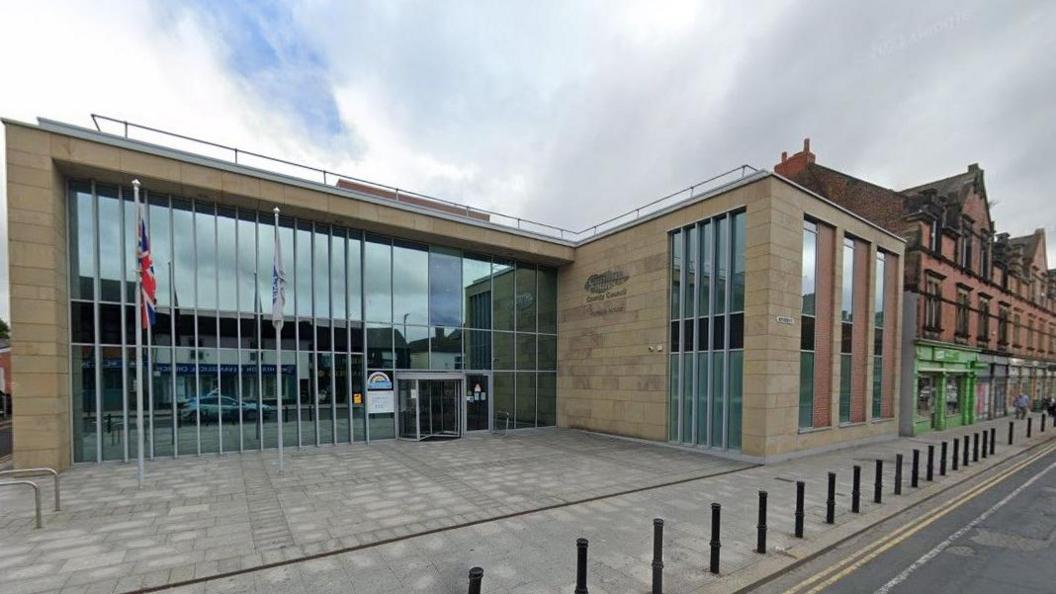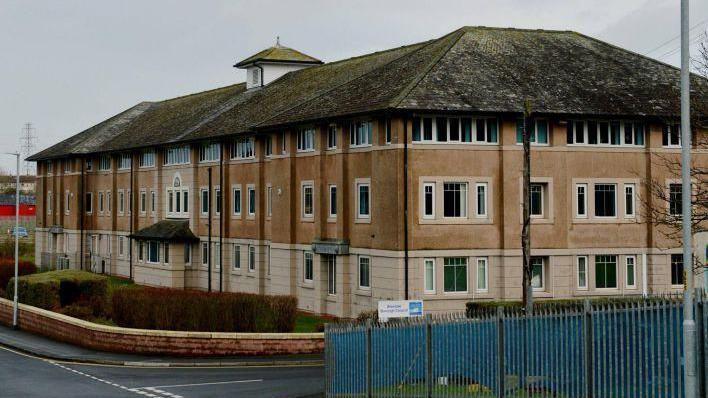Council told to release pay rise documents

The council has been given until 10 October to provide the documents
- Published
A court has ordered a council to release documents relating to a decision to double councillors’ pay over an 11-month period.
Cumberland Council refused to provide papers requested by the BBC under freedom of information law.
The First-tier Tribunal said the council must disclose submissions made by councillors to a remuneration panel.
The council said it believed it was in the public interest to withhold the information.
The documents date back to 2022, when an overhaul of local councils was taking place.
Cumberland councillors were elected in May 2022 and spent the period until April 2023 as a "shadow authority", preparing to take over running services from now defunct county and district councils.
Councillors initially agreed to receive a lower allowance during the shadow period, on the basis they would have less work to do before the old authority stepped back and the new authority assumed full responsibility.
Under those terms, it would mean receiving an annual rate of £6,000 during the shadow period, which would later be increased to £12,000 from April 2023.
Those with special responsibilities, such as the leader, would receive extra allowances, also set at half of the eventual rate.
This was on the recommendation of an "independent remuneration panel", but the council later appointed a new panel, which recommended councillors receive a full allowance throughout the shadow period.
Councillors approved the change in October 2022, and it was applied retrospectively to the period from May 2022.
The BBC understands the change cost more than £270,000.
The second panel said it had become clear that the 50 percent-rate did not reflect the work of councillors, "given the fast-moving, evolving nature of the work of the Shadow Authority".
Public interest
The BBC asked to see the evidence the panel had considered, including submissions made by councillors.
The council initially refused to provide the information, arguing to do so would "inhibit the free and frank provision of advice".
It later disclosed some documents, which showed councillors on other newly formed "shadow" authorities in recent years had taken either a relatively small, or no, allowance.
A "benchmarking" paper also showed some fully-fledged councils had basic allowances ranging between £12,500 and £14,870.50.
But Cumberland Council still refused to disclose councillors’ representations and diaries.
The Information Commissioner judged that the council was entitled to withhold the information, but following an appeal by the BBC, the tribunal has ruled that the public interest favours releasing it.
Cumberland Council also came under fire last year for raising councillors’ allowances by 20 percent.
Next steps
The council has been given until 10 October to provide the documents, but there may still be an appeal.
Cumberland Council said it released information where requested "in the vast majority of cases."
It said, in this case, its monitoring officer believed "the balance of public interest lay in favour of withholding the information".
A spokesperson added: "It is important that the independent remuneration panel are able to carry out their role efficiently and effectively and, in order to do this, it needs open and honest representations made to it.
"The council will now work with the Information Commissioner’s Office to determine the next steps to be taken in this process."
Warren Seddon, Director of Freedom of Information and Transparency at the Information Commissioner’s Office, said they noted the tribunal findings were "considering our position in relation to any potential appeal".
Follow BBC Cumbria on X, external, Facebook, external, Nextdoor and Instagram, external. Send your story ideas to northeastandcumbria@bbc.co.uk.
More stories from BBC North East and Cumbria
- Published22 September 2024
